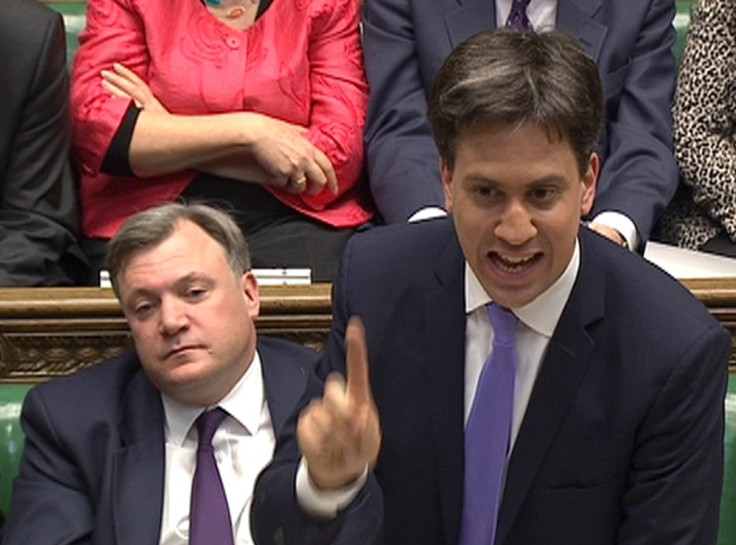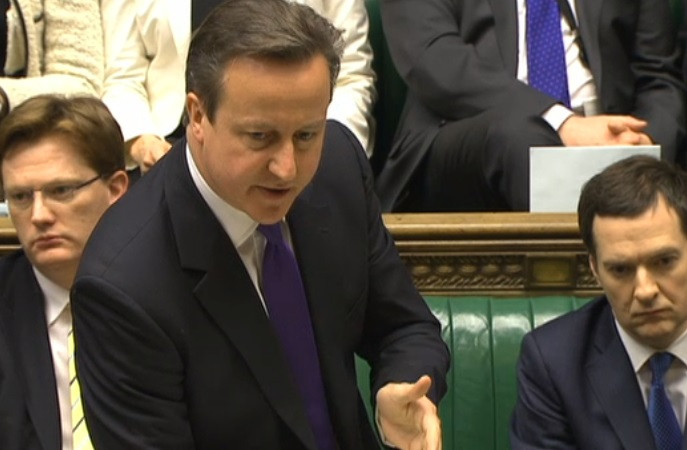Miliband and Cameron Widen Clear Blue Water Between the Parties

Opposition leaders have a tried and tested response to the annual Queen's Speech setting out government policies, which is to tear it apart line-by-line in the hope of scoring some big political points and boosting backbench morale.
Ed Miliband appeared to be trying something different when he faced David Cameron.
In opening remarks that seemed to go to the heart of the crisis facing British politics and amply expressed through the ballot box a week ago, he declared there was a bigger opponent to address.
"What the recent elections show is that more than at any time for generations, this House faces a contemporary battle of its own, a battle for relevance, legitimacy and standing in the eyes of the public.
"The key division is between those who think we can carry on as usual, and those who don't," he said.
Having hit the nail on the head, he begged the obvious question of what a Labour government would have done to address the crisis, at which point his alternative approach started to break down.
He listed all the policies he had already announced and which are starting to resemble the skeleton of an election manifesto.
"There would have been a make-work-pay bill to raise the minimum wage, a banking bill to help small businesses, a housing bill to improve supply and help those who rent, a community bill to tackle payday lending, and an immigration bill to stop workers being undercut," he said.

He also suggested the way MPs behaved in the Commons contributed to their low standing in the eyes of the public. Another point widely accepted across the chamber.
For example, after a number of Tory backbenchers challenged him to rule out increasing employers' national insurance contributions he said that asking questions clearly planted by party managers was one of the reasons people hated politics.
He went on to claim MPs shouting at each other across the floor of the chamber was another reason the public were turned off.
And that is where the apparent attempt to offer something a bit different broke down as, moments later, shadow chancellor Ed Balls started doing what he does best, namely yelling at the prime minister.
Cameron, who was already in full-on, old-style attack mode, seized on the eruption. "I thought shouting from a sedentary position was out of fashion....the message has not got through to the shadow chancellor," he jeered.
For his part, the prime minister stuck to the script. He repeated his mantra that only the Tories had the long term plan for the economy and he claimed Miliband's problem was the "complete absence of a plan".
He also used the traditional Commons tactic of personally attacking his opponent. On this occasion it was Miliband's failure to recall the name of one of his councillors or knowing what his groceries cost.
He even had a joke all lined up about Miliband's inability to eat a bacon sandwich. But the Labour leader had already trumped that one by raising it himself. Clever.
In the end the Cameron assault boiled down to accusing Miliband of being the new Michael Foot, whose 1983 left-wing election manifesto was ridiculed by one of his own MPs as "the longest suicide note in history".
It was, claimed Cameron, a "rag-bag, lucky-dip, selection of 70s statist ideas".
Both leaders delivered powerful performances of the sort they will have to produce on a regular basis as the election approaches.
And, no matter how successful Miliband's attempt to address the bigger crisis in politics was, at the end of their clash the blue water between them was clearer than ever and that, in itself, made this an important occasion.
© Copyright IBTimes 2025. All rights reserved.






















